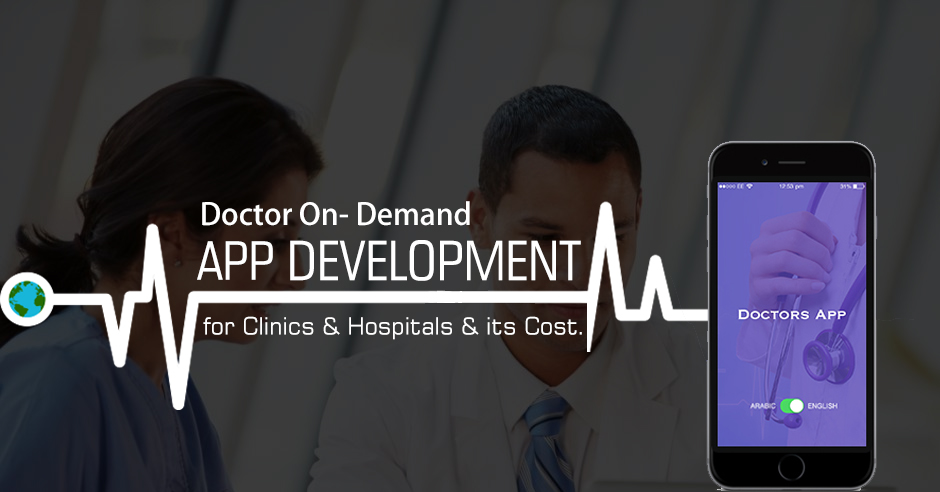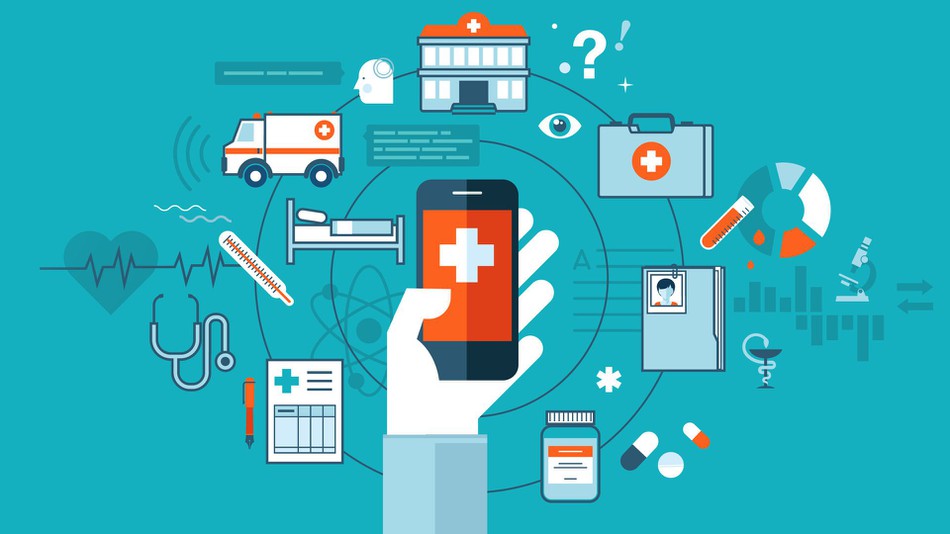How a Mobile App for Clinics Improves Communication Between Doctors and Patients
How a Mobile App for Clinics Improves Communication Between Doctors and Patients
Blog Article
Transform Your Clinic'S Workflow With an Innovative Mobile App
These applications not only streamline management tasks however likewise improve person involvement through attributes such as automated appointment scheduling and protected messaging. As facilities significantly look for to optimize their workflows and boost individual complete satisfaction, the question emerges: what particular functionalities should be focused on to make the most of professional performance and person care?
Advantages of Mobile Apps in Medical Care
As medical care proceeds to develop, the integration of mobile applications has actually become a transformative service that improves person care and functional effectiveness. Among the primary advantages of mobile apps is enhanced person engagement. By using features such as appointment scheduling, medicine suggestions, and straight communication with medical care providers, these applications encourage patients to take an active role in their health management.

Furthermore, mobile apps improve care control among health care groups. By enabling safe sharing of patient details, they promote partnership across different specialists, guaranteeing thorough treatment delivery. Finally, the fostering of mobile modern technology can lead to cost financial savings for medical care facilities by maximizing source allowance and reducing operational ineffectiveness. In summary, the advantages of mobile applications in healthcare are manifold, considerably enhancing both patient experiences and center operations.
Functions to Seek
When picking a mobile application for centers, it is important to think about a number of key functions that can dramatically impact both individual experience and operational performance. An user-friendly individual interface is important - mobile app for clinics. Clients must quickly browse the app to publication consultations, accessibility clinical records, and interact with health care suppliers
One more important function is safe messaging capacities, which allow private communication between individuals and personnel, promoting count on and enhancing care sychronisation. Additionally, consultation reminders and notices can enhance adherence to therapy plans and reduce no-show prices.
Combination with electronic health and wellness documents (EHR) systems makes sure that patient data is properly updated and available in genuine time, simplifying medical workflows. Attributes that make it possible for telehealth solutions can expand access to care and accommodate clients who might deal with flexibility or geographical challenges.
Finally, information analytics tools are beneficial for facilities to keep an eye on efficiency metrics, client contentment, and operational effectiveness, allowing for continual renovation. By prioritizing these attributes, facilities can select a mobile app that not just elevates person treatment however additionally optimizes their interior procedures for better end results.
Enhancing Client Interaction
Reliable mobile applications not just improve functional procedures yet also play a crucial duty in boosting patient interaction. By giving a straightforward interface, these applications facilitate smooth interaction in between health care providers and people, cultivating an extra interactive healthcare experience.
One secret feature that boosts involvement is visit scheduling, enabling clients to conveniently book, reschedule, or cancel consultations. This convenience reduces no-show rates read this article and empowers individuals to take possession of their healthcare journey. Additionally, mobile applications can send automatic pointers and notifications, ensuring clients are informed concerning upcoming appointments, medication schedules, and health pointers.
Additionally, educational content within the application can significantly enhance involvement by giving people with accessibility to pertinent info regarding additional reading their conditions and treatment alternatives. This empowers people to make enlightened decisions and proactively join their treatment.
Furthermore, protected messaging attributes allow individuals to interact straight with their doctor, fostering openness and depend on. This open line of interaction can lead to better adherence to therapy strategies and increased person complete satisfaction. Eventually, a properly designed mobile app can transform the person experience, making healthcare more engaging and easily accessible for all.
Streamlining Center Procedures
Just how can clinics optimize their day-to-day operations while boosting client care? The integration of an ingenious mobile app can substantially simplify clinic processes, leading to enhanced efficiency and client fulfillment. By automating visit organizing and management, clinics can decrease management problems, allowing team to concentrate on individual interactions.
Mobile apps promote smooth interaction in between clients and doctor, my response making it possible for real-time updates and suggestions for consultations, follow-ups, and medication adherence. This proactive strategy minimizes no-shows and improves the overall patient experience.

Case Studies and Success Stories
Various centers have experienced transformative results via the combination of innovative mobile apps, showcasing the capacity for boosted functional efficiency and individual involvement. One remarkable instance is a mid-sized family medicine that carried out a mobile application to promote visit organizing and reminders. As a result, they reported a 40% reduction in missed visits and a substantial renovation in individual fulfillment ratings.
One more case involved a specialty facility that utilized a mobile app for telemedicine examinations. This permitted them to increase their reach, making it possible for people in remote areas to gain access to specialized treatment. The clinic saw a 30% increase in patient assessments within the first quarter of application, demonstrating the app's role in linking healthcare gain access to spaces.
Additionally, a dental facility adopted a mobile app for person education and post-treatment follow-up. mobile app for clinics. By offering personalized treatment directions and pointers via the app, they attained a 50% decrease in post-operative problems, bring about improved patient outcomes and commitment
These success stories highlight the diverse applications of mobile apps in professional settings, emphasizing their ability to simplify procedures, enhance client involvement, and eventually, elevate the requirement of treatment.
Final Thought
Finally, the combination of a mobile app into clinic procedures offers numerous benefits, including boosted person interaction and streamlined management processes. By automating essential jobs such as visit organizing and assisting in protected interaction, centers can enhance source allotment and improve overall individual complete satisfaction. The effective execution of such innovation not only promotes far better treatment control amongst healthcare groups yet likewise equips people to take an energetic duty in managing their health, ultimately boosting the standard of treatment.
As facilities significantly seek to optimize their operations and improve client contentment, the question occurs: what certain functionalities should be focused on to make the most of medical efficiency and patient treatment?When choosing a mobile app for centers, it is vital to think about a number of crucial attributes that can considerably impact both patient experience and functional efficiency. The combination of an innovative mobile app can considerably improve clinic processes, resulting in improved performance and individual satisfaction.Numerous centers have actually experienced transformative results through the integration of cutting-edge mobile apps, showcasing the capacity for enhanced functional effectiveness and client interaction.In verdict, the assimilation of a mobile app into center procedures offers countless benefits, consisting of boosted client engagement and streamlined management processes.
Report this page